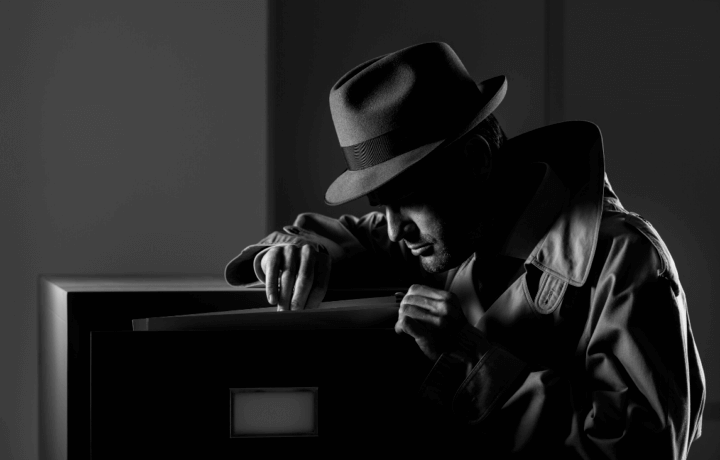No one was more surprised than George Trofimoff on June 14, 2000, when the FBI arrested him in a Tampa, FL-hotel room for espionage on behalf of Russia. You see, George went to the hotel to meet with an SVR (Russian external intelligence service) officer to continue their ongoing discussions for which he was to receive a “special payment.”
Trofimoff had previously been arrested in 1994 by German authorities and Igor Susemihl on suspicion of espionage. Susemihl was the metropolitan bishop of Vienna and Austria of the Russian Orthodox Church at the time of his arrest (previously he was the auxiliary bishop of Munich and West Germany from 1966-to 1972). Susemihl, in addition to his clerical duties, was well-entrenched within the KGB and recruited Trofimoff to provide classified materials to the Soviet Union. The German government wasn’t able to prosecute the duo due to the statute of limitations of five years for the espionage, and they were released.
The United States does not have a statute of limitations for espionage. The U.S. Army and FBI continued their counterintelligence investigation.
George Trofimoff
Trofimoff was born to Russian émigré parents in 1927 in Berlin, Germany. Trofimoff and Susemihl grew up together in Germany. Indeed, when Trofimoff’s father, Vladimir, a major in the White Russian Army became destitute, he asked Vladimir and Antonina Sharavov to care for his son George. Antonina’s son from a previous marriage was Igor Susemihl. In 1944, Trofimoff was conscripted into the German Army, which propelled him to escape to Czechoslovakia where he hid until the end of the war, at which time he returned to the American Zone of Germany. He served as an interpreter for the U.S. Army, and in 1947 he flew to the United States, sponsored by the “Society of Friends”.
In 1948, Trofimoff enlisted in the U.S. Army and became a U.S. citizen in 1951. In 1953, he was commissioned in the Army Reserves, received an honorable discharge from active duty in 1956, and retired from the U.S. Army Reserves with the rank of Colonel in 1987.
Trofimoff worked with the Army 66th Military Intelligence group during both his military career and post-retirement civilian employment. In 1969, Trofimoff was the head of the Nuremberg Joint Interrogation Center, where Soviet and Eastern Bloc defectors were debriefed. Trofimoff was a treasure trove of classified information for the KGB/SVR. Indeed, he provided over 50,000 classified documents to the Russians and received but $250,000 for his efforts.
In the latter days of his espionage, Trofimoff would smuggle the documents home and then photograph the documents with a “special camera” provided by the Russians. He would then travel to Austria to meet with Susemihl and other Russian intelligence officers. He was paid in cash, Deutchemarks, by the Russians for his production. His monthly stipend was 7,000 Deutchemarks, with production bonuses for the documents provided.
Uncovering Trofimoff
It was in 1992, when the Mitrokhin papers landed in the hands of British Intelligence, that the west learned of a source within the Joint Interrogation center existed, code name: Markiz. Mitrokhin’s notes didn’t finger Trofimoff precisely, though did identify a “source within American intelligence” and his connection to a “Russian Orthodox clergyman.”
As noted above, Trofimoff and Susemihl were arrested and released in Germany in 1994. Once his German ordeal concluded, Trofimoff and his fifth wife, moved from Germany to the United States and purchased a home located along the Space Coast of Florida in the tranquil community of Viera.
When Susemihl passed in July 1999 Trofimoff expected an “inheritance” that did not materialize.
Though the German government was unable to prosecute in 1994, the United States had continued their investigation into “Markiz” and in 2000 put together a sting operation where an undercover FBI Special Agent approached Trofimoff at his Florida residence, where the FBI S/A posed as a Russian intelligence officer. Trofimoff was asked to renew the relationship and in exchange Trofimoff would receive a “special payment.”
Trofimoff, in need of funds, agreed and over the course of several meetings admitted to having been recruited to provide classified information by “his brother Igor.” He described how the recruitment took place and the depth and scope of the classified materials provided to the Russians. The videotaped confession was played at this subsequent trial, where he pleaded not guilty. His logic: he wasn’t disloyal; he was simply trying to reduce his personal debt.
Following a four-week trial, and a 90-minute deliberation, the jury convicted him. He was sentenced On September 27, 2001, to life in prison. George Trofimoff died in the U.S. penitentiary located in Victorville, CA on September 19, 2014.
For additional reading, I commend The Imperfect Spy, the Inside Story of a Convicted Spy by Andy J. Byers, which takes the reader from Trofimoff’s early years through his conviction for espionage in 2001.




